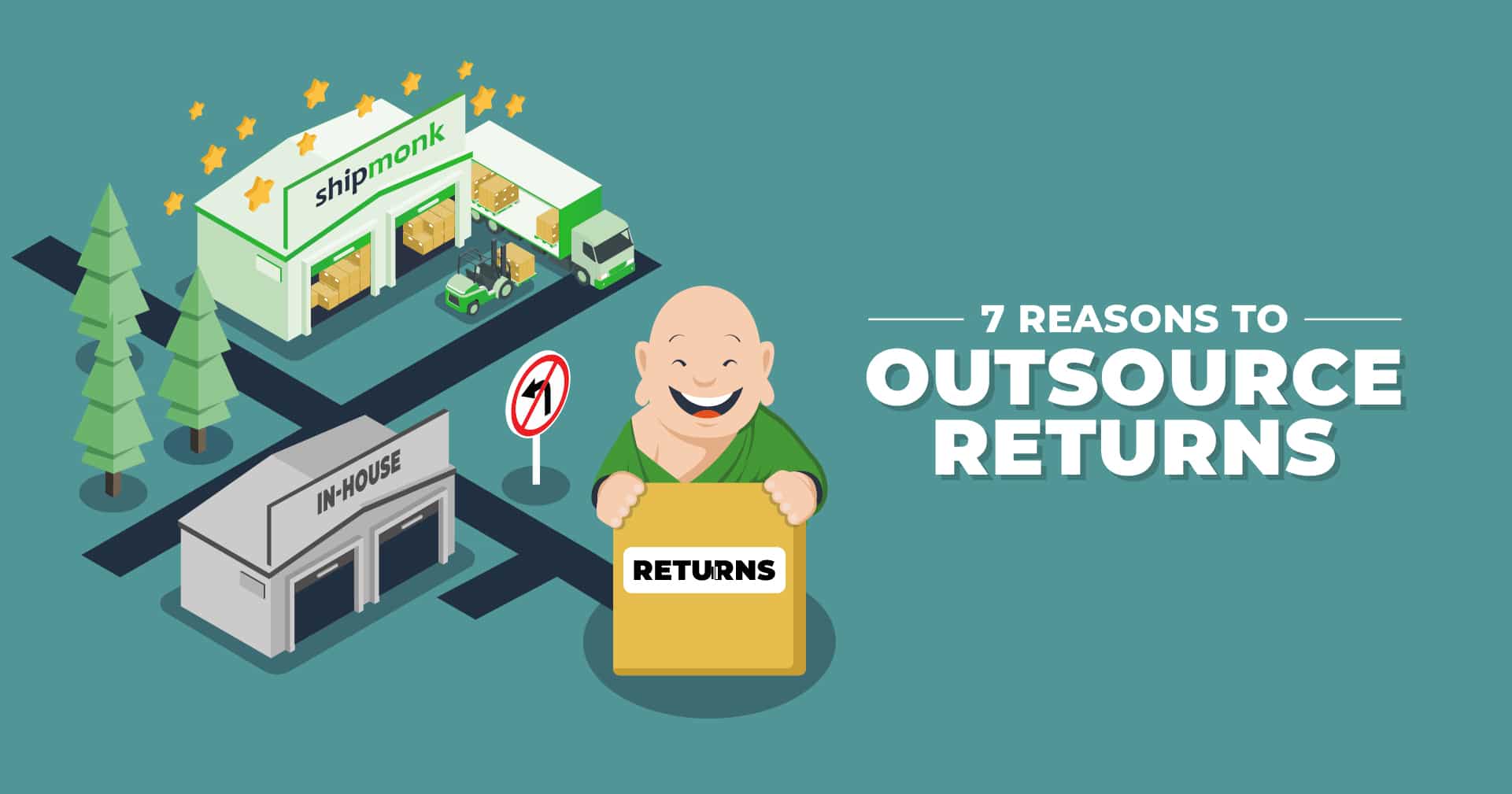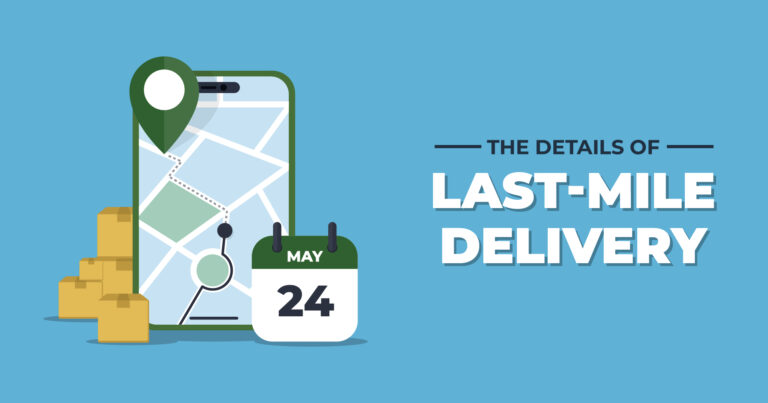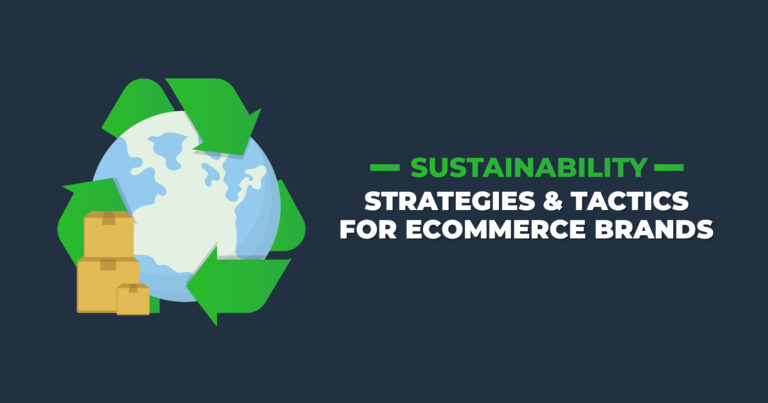7 Reasons to Outsource Returns
As your ecommerce businesses powers through the peak shopping season, it’s easy to forget there’s one more peak to climb. “Let’s hear it for peak return season!” said nobody, ever. But it’ll be upon us before we know it.
The week after Christmas typically sees the largest number of returns, around 17.9% of total holiday sales in 2022. That’s a whopping $171 billion out of a total of $960 billion U.S. holiday sales last year, according to the National Retail Federation. Return rates were a bit lower when averaged over the entire year, but still abominable at 16.5% of total sales. And that’s the average, so if your online store sells clothing, shoes or accessories (the most commonly returned online purchases) expect your return rate to be much higher than that.
You only have to live through it once to realize the negative impact reverse logistics can have on your forward logistics operations. The returns process is every bit as complex and labor intensive as the outbound fulfillment process, but nowhere near as rewarding. It’s no wonder many ecommerce brands don’t put a plan in place until they’re up to their necks in returned merchandise.
So, the question is, how are you going to handle the reverse logistics rush? Do you have the people, space, and time to handle it in-house? Or should you outsource to a third-party returns management company or a 3PL? As one of those third-party logistics (3PL) companies that handles returns, we’re not exactly impartial in this debate, but we can offer you several good reasons to outsource returns management. Just hear us out! Even if you don’t agree, you might glean a few tips on how to improve your own process.
The Returns Process
We mentioned that reverse logistics is just as complicated as forward logistics, and we weren’t kidding. The returns process is all the more difficult because the entire supply chain is focused on moving goods forward, not backward, so you’re working against the flow.
While ecommerce businesses might handle each step differently, the basic steps to a return process are the same:
1.) Customer initiates the return or exchange.
2.) Merchant approves/denies the return, or facilitates an exchange.
3.) A return label is generated.
4.) Customer drops off the product at carrier or return location.
5.) Product is shipped to the return processing location.
6.) Product is inspected and handled according to the merchant’s specifications based on its condition.
- Products suitable for resale by the merchant are repackaged and relabeled, if necessary, then restocked.
- Products not suitable for resale by the merchant might be shipped to a reseller or liquidator, donated, recycled, or disposed of.
- Products under warranty or that require closer inspection might be shipped to the merchant or back to the manufacturer.
7.) Merchant processes the refund.
The entire purpose of managing returns is to reduce your losses, and recoup as much value as you can out of the returned merchandise. That means the faster and more efficiently you can get saleable items back on the shelf, and clear non-saleable items out of your way, the better off you and your customers will be. Which is why you should consider outsourcing returns management.
7 Reasons to Outsource Returns Management
1.) Dedicated Teams
A logistics company that specializes in returns doesn’t have to pull valuable employees away from their day jobs to handle returns on the side. They have dedicated teams that work year-round processing returns for hundreds of ecommerce clients. Team members are trained to inspect each item as it comes in and follow the merchant’s instructions to the letter. Best of all, the merchant only pays for the services they receive.
2.) Speed
Of course, it helps if the same company that’s handling your fulfillment is also handling your returns. It makes getting those items back on the shelf so much quicker. A fulfillment company that is familiar with your products is also going to be that much better at recognizing what needs to be done to get that item refurbished, relabeled and restocked. If the claim requires a reshipment or exchange, your 3PL knows how to handle that better than anyone and can process it immediately. All this speed isn’t just for show. The sooner your customer’s issue is resolved, whether with a refund, exchange or reshipment, the happier they will be. You’re protecting your brand.
3.) Technology
The same fulfillment software system that helps you manage orders and inventory levels can also be used to track a return from the moment the customer initiates the process to the moment the product is back on the shelf. ShipMonk’s industry-leading software supports seamless integration with shopping carts, payment systems, customer support apps and return merchandise authorization (RMA) systems. These systems allow you to automate repetitive tasks like authorizing straightforward returns, and issuing refunds or exchanges.
4.) Space
Do you have space to spare for piles of merchandise that need to be sorted, repackaged and restocked? 3PLs do, and plenty of it. They can fulfill your orders and process your returns at the same time, in the same warehouse. And they’re paying the overhead, not you.
5.) Experience
As the name implies, third-party logistics companies are pretty good at logistics. That’s why ecommerce businesses choose them to handle their fulfillment. If they can’t turn your returns process into a well-oiled machine, no one can.
6.) Cost Savings
A third-party returns management company or 3PL has already invested in most of the infrastructure you need to manage returns efficiently. That’s why outsourcing can lead to significant cost savings.
- Labor – It costs money to hire and train workers to handle returns in-house. While you’re still paying for the labor with a third-party provider, you don’t have to do the hiring or training, and you’re only paying for the time they spend on your returns.
- Capital expense – 3PLs have already invested in warehouse space, automation, equipment and technology, so you don’t have to. The money you don’t spend on managing returns can be put to use doing something valuable, like designing new products or creating impactful marketing campaigns.
- Shipping costs – 3PLs have well-established relationships with local, regional, national and global shipping carriers. Their huge shipping volume qualifies them for discounts with these carriers, which you can pass on to your customers in the form of free returns, or lower shipping costs. Your choice.
- Freight management – 3PLs can also help with bulk shipping for end-of-life products or unsold goods, a much-overlooked part of returns management.
- Protection against loss – Shipping companies may protect against lost or damaged goods, but they won’t protect against theft. Most 3PLs offer protection against mis-picked or mis-labeled orders, but only ShipMonk offers MonkProtect, a post-purchase solution that lets customers safeguard delivery of their ecommerce orders by paying a small additional fee during checkout. If an order is lost, damaged, stolen, or arrives incorrectly, the order is reshipped at no cost to the merchant.
- Self-Serviced Interactions – MonkProtect’s self-service claims portal allows customers to initiate a return without engaging customer support. If support is needed, customer service teams have full access to tracking and reporting data within the ShipMonk app.
7.) Peace of Mind
You can’t avoid returns altogether, but you can lessen their impact on your business. Why not put your returns in the hands of the logistics experts, and rest easy knowing they’ve got your back? You’ll be happier knowing your customers’ issues are being addressed swiftly, and they’ll be happier doing business with you.
Did We Mention Outsourcing?
Okay, so maybe we’re a little biased, but you have to admit it does make sense to outsource returns management to your fulfillment provider — provided, of course, they offer the service. It’s just easier to keep everything under one roof. You’ll know where your merchandise is at all times, while taking advantage of the infrastructure, technology, shipping solutions, expertise and support that a 3PL can offer.
Convinced? Drop us a line and tell us about your business. We’re here to help!



